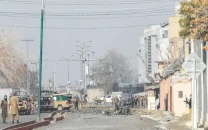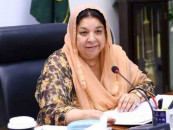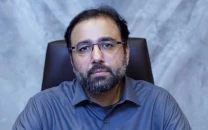Social media woes
I am often told that many social media users have stopped reading newspapers or watching the news

They are of the opinion that it’s far better to approach events happening across the globe in a small screen of a mobile phone than to consume their precious time by reading newspapers. However, the dissemination of fake news stories and misinformation has always raised questions over the credibility of news and information shared on social media. Fake, processed or fabricated photos are often circulated on these platforms.
Last year, many social media users in Pakistan took to Facebook to share snapshots of what they were claiming were Muslims brutally being killed by Burma’s Buddhists. I have personally gone through various authentication tools to check the credibility of those photos. I was amazed to find that many of those images were fabricated.
Recently, following the tension on the Torkham Border of Khyber Agency, many took to social media to condemn unprovoked firing by Afghan forces on Pakistan security forces on the border over the construction of the gate. When I logged onto Facebook, I was dismayed at the fact that some counterfeit photos were circulated by users. The photos depicted Afghan security personnel being killed by Pakistani forces at the Torkham border!
Fortunately, we have various tools offering online users to check authenticity of information. For instance, we have the Google image section. Simply upload a picture from your desktop into the images section of Google and at one click, it will take you to various links from where you can verify the origin of pictures.
I suggest every social media user must make an effort to authenticate ‘news’ items. They should always check if the account they are following has any involvement in the news story shared. One should never put blind trust in any material being shared by a user on one’s friend list.
Social media is also used as a tool to promote sectarianism.
The government is striving to control the cyber world through Electronics Crime Bill, but there should be a campaign to make the public aware of the pitfalls of information sharing on social media and how easily fabricated items can go viral.
Journalists using social media platforms can also help users in their friend lists to check the authenticity of news stories as reporters are more informed than the general public.
Published in The Express Tribune, June 28th, 2016.



















COMMENTS
Comments are moderated and generally will be posted if they are on-topic and not abusive.
For more information, please see our Comments FAQ